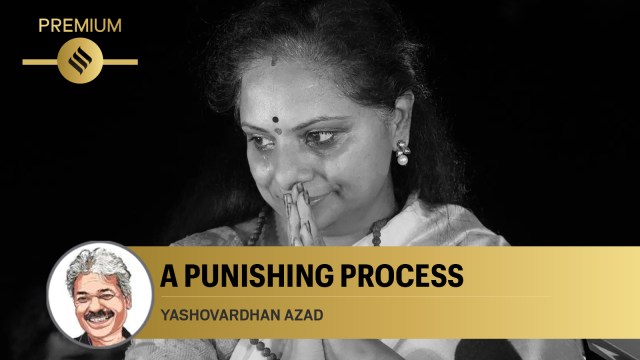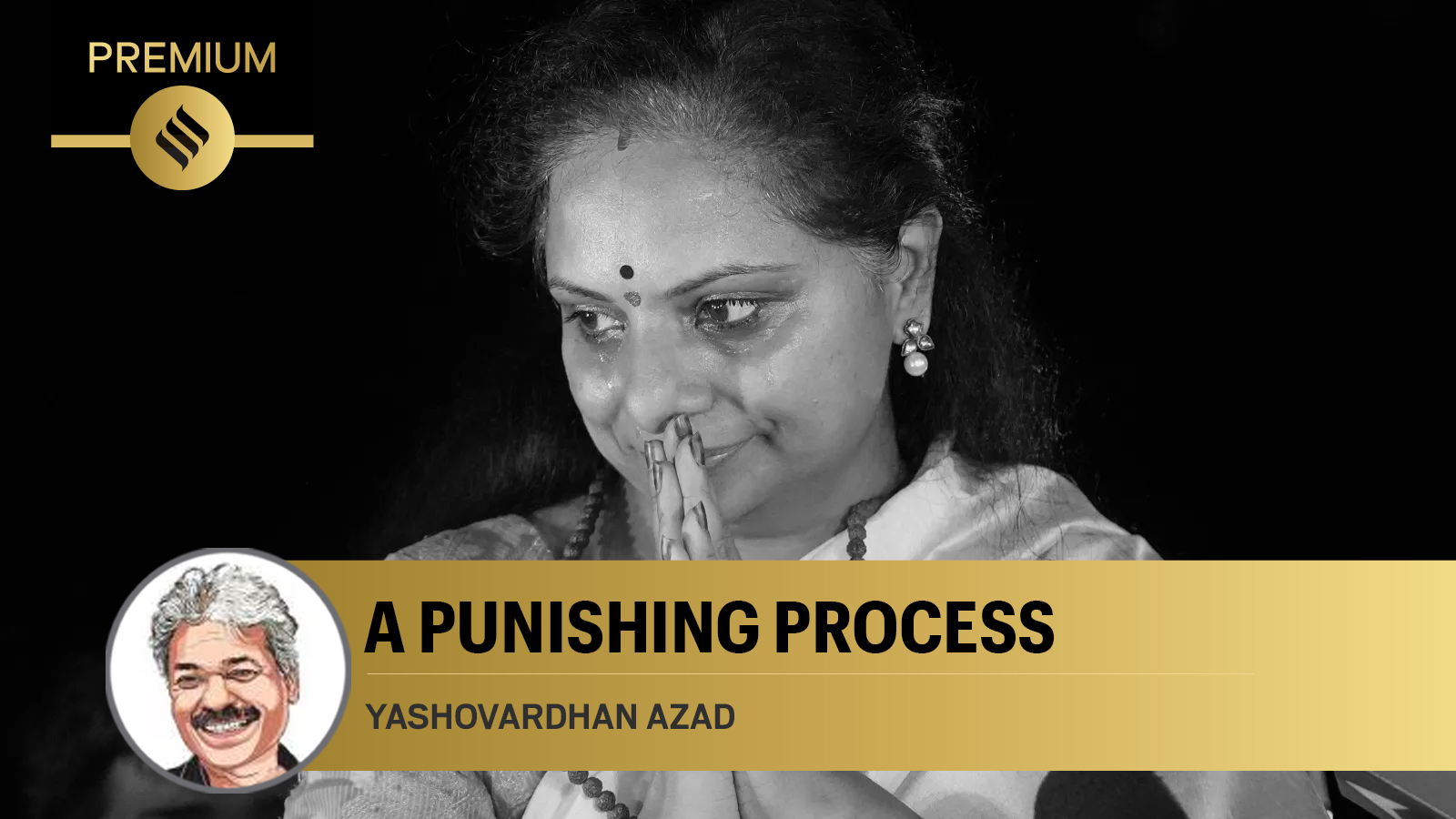
A clutch of recent Supreme Court judgments has established that the principle “bail is the rule, and jail is the exception” shall apply to special laws like the Unlawful Activities (Prevention) Act, 1967 (UAPA) or the Prevention of Money Laundering Act, 2002 (PMLA). In the case of B R S leader K Kavitha too, the court observed on Tuesday, “Undertrial custody should not turn into a punishment”.
Earlier, a Delhi Court pulled up the Enforcement Directorate (ED) for using the stringent sections of PMLA to summon private doctors and record their statements. It said, “Strong leaders, laws and agencies generally come back to bite the very citizens they vow to protect.” Another court in Mumbai reminded the ED of its constitutional obligation to ensure expeditious trial. The court granted bail to two accused, incarcerated since October 2020. Of course, the SC has held that money laundering is a serious crime, which promotes other offences. However, a slew of judgments by PMLA courts on the ED’s functioning require serious review.
In 1998, India signed the UN Declaration at the Special Session on ‘Countering the World Drug Problem’ and on the ‘Need to Combat Money Laundering’. But little did one know that the issue would precipitate a political maelstrom 25 years later. The ED stands amidst a sharply divided polity and is often seen as biased against the Opposition. The Supreme Court is due to review some sections of the PMLA later this year, especially in the context of its verdict in Madan Lal Choudhary (2022), which upheld the constitutional validity of certain provisions of the PMLA. It justified the non-disclosure of the Enforcement Case Information Report (ECIR) on the grounds that it’s an internal document and disclosing the details in it can adversely impact the investigation.
To be fair to the ED, the PMLA has been framed in consonance with the directives of the Financial Action Task Force (FATF), an intergovernmental organisation formed to combat money laundering and terror financing. Most countries have laws similar to India.
It is, however, known the world over that tough laws have no direct correlation with falling crime. Yet, amendments to PMLA give seemingly unbridled powers to the ED. In 2012, the definition of money laundering was broadened to include concealment, acquisition, possession, and use of proceeds of crime as criminal activities. In 2015, the definition of proceeds of crime was extended to assets in India if the act of laundering was conducted abroad. The 2018 amendment revived the twin conditions for bail under Section 45, making it incumbent upon a court to satisfy itself that a crime was committed or the accused was unlikely to flee. But the coup de grace was delivered by the 2019 amendment that gave the ED almost unbridled powers of summons, arrests, raids and attachment of property. Money laundering also became a standalone offence, rather than a “connected schedule” offence. It authorised the search and seizure of property and persons on the basis of a simple warrant by an appropriate authority, without the registration of an FIR or a chargesheet.
Have the changes in law made a difference to ED’s performance? In terms of the number of cases registered and assets attached, the ED in the NDA regime beats the UPA years hollow. The return of confiscated assets worth Rs 15,000 crore to public sector banks is a great achievement. Against 1,797 cases in 2005-14, 5,155 cases were registered in 2014-23. In the same period, the value of assets attached went up from Rs 5,086 crore to Rs 1.2 lakh crore. But only 25 cases have gone through the court processes; 24 of them resulted in a conviction.
While these numbers may bring cheer to the ED and government, a plethora of issues raise concern. Is PMLA a draconian piece of legislation or is it that the ED does not provide a level-playing field? Politicians have been implicated in only 3 per cent of the ED cases, but more than 90 per cent are from the Opposition. Those who have shifted from the Opposition to the ruling side find their cases being put in cold storage.
But PMLA is not all about politicians. It’s more about the other 97 per cent accused — some in jail for long periods because of the extremely stringent bail conditions and inordinately long judicial trial. In 21 years, only 25 cases have been decided by the court — one reason being the various means deployed by rich offenders to delay trials. Another issue is whether the ED has the capacity to run so many investigations simultaneously. The agency has a sanctioned strength of 2,067. It has requested the government to triple its strength and establish offices in every state capital. Over 11,000 cases of foreign exchange violations were initiated in the past three years alone. How does the agency prioritise? Does it go sequentially or by the alleged pick-and-choose method whereby some old cases are put in cold storage on unusual considerations?
Liberalisation and the expansion of economy has led to an increase in white-collar crimes but can the world’s largest democracy use an Act with stringent provisions to curb them? These include arrest without ECIR, the statement of the accused before the ED being admissible, the burden of proof resting on the accused and no magisterial oversight. The potential of misuse of these draconian provisions by any ruling dispensation is large.
PMLA was framed under FATF directives, but it cannot go against the spirit of the Constitution. The ED needs to ensure that for legitimate relief enshrined in the PMLA, the accused do not have to approach the courts. The SC is due to review the harsh provisions of the Act later this year. If the Court does not provide relief, it will fall upon the people to pressure their representatives in the Parliament to amend the Act in the interest of democracy.
The writer is a former central information commissioner and a retired IPS officer who served as secretary, security, and special director, Intelligence Bureau. Views are personal



